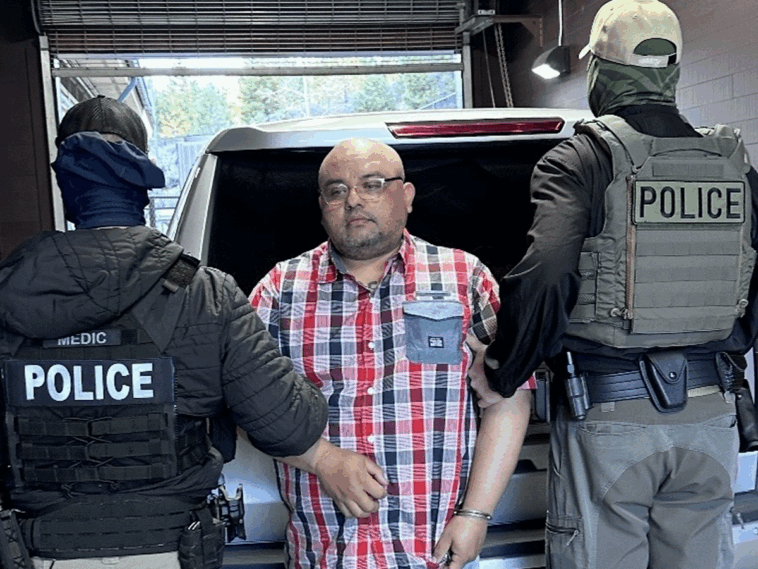On Tuesday, elected officials in San Francisco issued a mandate for local law enforcement to establish comprehensive guidelines for dealing with immigration enforcement incidents in the city. The decision came in light of the recent increase in federal agents arresting immigrants in broad daylight in downtown San Francisco. According to public officials, these events pose a potential threat to public safety. Moreover, the occurrence of unidentified officers patrolling the city has deteriorated the public’s confidence in law enforcement, particularly amongst ethnic communities.
During a meeting of the Board of Supervisors, Chyanne Chen, the Supervisor of District 11, tabled the nonbinding resolution. She emphasized the urgent need for unity between law enforcement agencies and communities. Chen strongly urged both the city’s police department and sheriff’s office to prioritize restoring the public’s faith in them during this potentially contentious period.
Although the resolution is nonbinding, it nevertheless encourages the police and sheriff’s departments to devise detailed standard operating procedures for officers and deputies. These procedures should be followed when service calls related to possible detentions by Immigration and Customs Enforcement (ICE) arise. The resolution also requests law enforcement bodies to communicate these protocols to the residents of San Francisco.
The resolution highlighted the Los Angeles Police Department’s (LAPD) methods as a viable prototype to emulate. LAPD’s Jim McDonnell, on June 27, outlined the department’s policy for instances where masked personnel, presumed to be ICE operatives, are engaged. The strategy involves officers initiating contact with a lead agent or supervisor, verifying their credentials, and recording the complete procedure using body-worn cameras. Subsequent to the credentials’ validation, LAPD officers permit ICE officials to carry on with their tasks.
Taking a stance, Supervisor Chen viewed the development of such guidelines as a measured but crucial step towards preserving the trust of the public. Additionally, by assuring public safety for city residents and respecting due process rights provided to all, the city would be demonstrating its commitment towards a just and equal society.
The need for this policy became evident following an incident involving San Francisco police officers, who were videotaped maintaining their distance from a confrontational ICE demonstration on July 8. The event unfolded outside the city’s immigration court, seeing an ICE agent intimidating protesters with a rifle and an ICE-driven van forcing its way through a crowd of protestors.
In an ensuing town hall in the Castro district on July 11, San Francisco Deputy Chief Derrick Lew proposed that the police might mediate between ICE agents and protesters in the future. He emphasized on the role of the police as peacekeepers during arrests by ICE, and stated they couldn’t passively watch another law enforcement officer get injured.
In light of the protest and subsequent remarks made, along with investigative reports revealing the exchange of data between surveillance systems and ICE, Supervisor Jackie Fielder formally requested an explanation from SFPD about their protocols and operational relationship with ICE. Showing their agreement, supervisors Connie Chan, Bilal Mahmood, Shamann Walton, and Myrna Melgar, along with Fielder, stood in solidarity with the resolution.
Contrasting with Los Angeles, San Francisco has not experienced mass arrests on venues such as employment sites. Instead, immigration authorities have largely targeted individuals during routine checks outside ICE field offices on Sansome St., and after proceedings at the major immigration court situated on Montgomery St.
The timing is rather challenging for the police department to formulate new policies. The city’s previous Police Chief, Bill Scott, departed in May, leaving the department in a transitional state with interim chief Paul Yep, who affirmed that he is not in the running for the permanent position.
In response to the resolution proposed by the supervisors, Mayor Daniel Lurie’s office declined to comment, referencing the past administration’s approach of refraining from commenting on nonbinding resolutions. Mayor Lurie has previously addressed the Trump administration’s immigration policies as a generality, attesting they jeopardize the safety of San Franciscans. However, his reluctance to address ICE arrests directly has been the subject of criticism from immigrant advocate groups.
The police and sheriff’s departments did not provide an immediate response for commentary on Tuesday evening. San Francisco’s 1989 sanctuary law restricts all city employees, including police officers, from supporting ICE in their investigations or raids. The only exception allows local law enforcement to intervene when it appears significantly necessary to prevent substantial harm to individuals, irrespective of whether a criminal offense is committed.
The appearance of masked officers across the state of California has provoked fears regarding the potential for vigilantes impersonating law enforcement personnel. In response to this growing concern, state senators Scott Wiener and Jesse Arreguin introduced a bill on June 16. It seeks to prohibit local, state, and federal law enforcement officers from wearing masks while operating in public spaces, although whether the state can compel federal agents to remove their masks remains uncertain.
San Francisco’s supervisors have previously expressed their opinion on ICE’s methods. On June 17, they unanimously approved a resolution denouncing ‘the abduction of immigrants’ by ICE. The resolution strongly recommended unwavering adherence to due process, preservation of family unity, and humane treatment of migrants legally pursuing their claims.
The resolution and the ensuing debate underline the complex sociopolitical dynamics at play in San Francisco around immigration. The city’s leadership and law enforcement are grappling with ensuring public safety, restoring trust, and navigating the complex federal, state, and local laws around immigration, while also seeking to uphold the civil rights of all residents, documented and undocumented alike.

